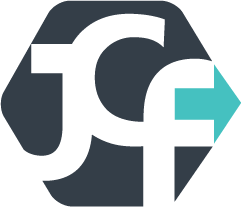2023 Investment Report
For the year ended March 31, 2023 the Jewish Community Foundation of Montreal’s pooled fund had a net return of 3.4%. The annualized net return for the last five years has been 5.4%.
Performance of Markets
For the fiscal year, the FTSE Canada Universe returned
-2.0% (CAD), the S&P/TSX composite -5.2% (CAD), the
MSCI World Net 0.7% (CAD), and the MSCI Emerging
Markets Net -3.2% (CAD).
Both equity and fixed income markets were impacted by
the effects of inflation and rising interest rates.
The Canadian fixed income market had a negative
performance for the fiscal year due to concerns about
inflation and continued hawkish views expressed by the
central banks through rapid interest rate increases, and we
saw the yield curve invert, which is usually a precursor to
a recession.
The Canadian equities market also had a negative
performance for the fiscal year as only three of the
eleven sectors had positive returns. Energy, materials, and
finance, the three largest sectors of the Canadian market
had negative performance during that period.
The Global equity market had a slightly positive return
for the fiscal year as eight of eleven sectors had positive
returns. The sectors that added the most value during the
past year were information technology, healthcare and
industrial.
The Emerging equity markets had a negative performance
for the fiscal year as six of the eleven sectors had negative
returns. The two largest sectors in Emerging markets,
finance and Information technology, had negative returns.
The private market portfolio helped sustain absolute
returns over the fiscal year. The JCF private equity
portfolio returned 0.4% (USD), global real estate 8.6%
(USD), private debt 4.5% (USD), timber, agriculture, and
infrastructure 13.4% (USD), and Hedge Funds 0.8% (CAD).
returns, mainly driven by revenues from the energy sector.
JCF’s infrastructure portfolio has a natural resources tilt and benefited from this development.
of March where the impact was mostly indirect through
interest rate and inflation related exposures along with
broader de-risking.
Currency and Currency Hedging
JCF uses a dynamic currency hedging policy approved by the Investment Committee with the aim of mainly reducing negative effects of currency fluctuations while attempting to benefit from positive fluctuations. The hedging of USD exposure is adjusted quarterly considering the perceived value of the USD/CAD exchange rates vs the purchasing power parity published by the OECD.
Over the fiscal year, the Canadian dollar depreciated by more than 8% against the US dollar. Over that period, the currency hedging strategy mandated hedging at 50% during the fourth quarter of 2022 and no hedging in the other three quarters. This approach yielded an additional 0.2% of return for the year.
Asset Allocation
The JCF has a long-term outlook, and its investment policy seeks to generate average returns that will support the programs funded by our donors. The investment policy and philosophy are set by the Investment Committee, primarily to invest for the long-term, to use a multi-manager approach, to diversify the portfolio by investing in an array of asset classes, and to have an allocation to hedged investment strategies with the goal of smoothing the Fund’s return volatility over time. The policy targets and actual exposures as of March 31, 2023, were:



